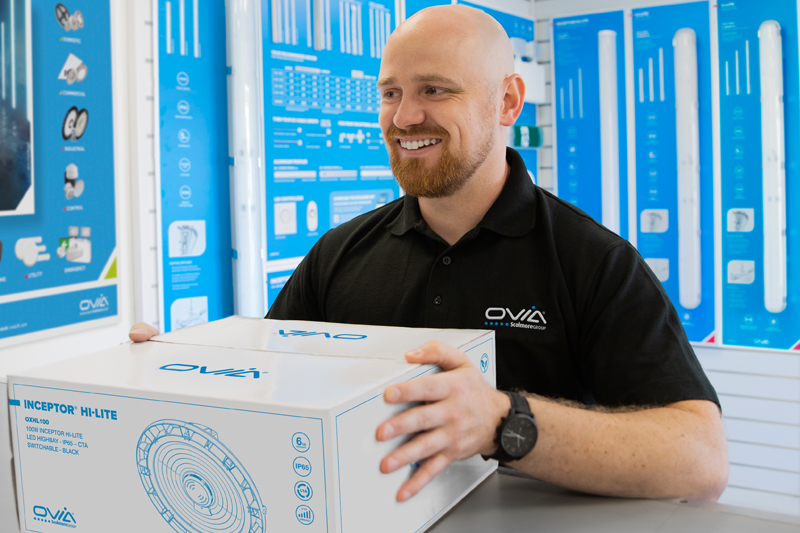AI is now impacting every industry and the electrical wholesaler sector is no different. Wayne Fraser, Chief Information & AI Officer at Klipboard, looks at how AI in electrical wholesale can power smarter trade decisions.
With the rapid acceleration of EV infrastructure, the growth of smart homes, and the increasing adoption of renewable technologies, the electrical wholesale sector is becoming more complex – and more central to the wider economy. Our industry is no longer just about supplying product; we’re enabling critical national infrastructure. And with that shift, the operational pressures have grown. Businesses now face tighter margins, higher customer expectations, and a growing demand for technical expertise. That’s where AI comes in. Not as a future promise, but as a present-day necessity.
From discussion to deployment
Over the past 18 months, we’ve seen a fundamental shift in how wholesale distributors – particularly in the electrical space – are approaching AI. It’s moved beyond boardroom conversations and into real operational impact. Across the UK wholesale distribution market, nearly 50% of businesses now rank AI as a top investment priority. And for good reason: the challenges we face aren’t getting simpler. AI isn’t hype anymore, it’s how we start to solve long-standing problems at scale.
Tackling long-standing operational friction
Electrical wholesalers, more than most, have always had to deal with intense stock complexity. Whether it’s tracking reels of cable by the metre, handling variants of the same product line with minor but critical technical differences or managing customer-specific pricing agreements across thousands of SKUs, these are problems that don’t lend themselves to manual workarounds. Historically, many of these processes were either spreadsheet-based, or bolted onto ageing ERP systems. That’s not a sustainable approach for organisations that want to lead in today’s climate.
What we’re seeing now is the market turning to the next generation of software. Platforms where AI is built-in from the ground up. Take inventory management, for example. At Klipboard, the ERP One platform integrates natively with AI tools to support intelligent stock forecasting. By combining internal sales history with external data points – such as seasonal demand, project timelines, and even shifts in EV infrastructure investment – merchants are able to make smarter decisions about what to stock, when to reorder, and how much capital to commit.
Rethinking logistics
The benefits don’t stop at the warehouse. Logistics and fleet operations are evolving too. In distribution, the cost of delivery has always been a delicate balance between efficiency and service. Kilpboard has integrated AI-led auto-routing into its Transport Management (VIGO) platform. By using live traffic data and historical delivery performance, Klipboard helps drivers complete more drops per shift, reduce fuel usage, and improve on-time performance, all while supporting the sustainability commitments that more of our customers now expect.
Supporting the frontline with smart tools
At the same time, we’re seeing AI enhance the customer experience, both online and at the trade counter. AI-powered assistants, like Klipboard Copilot, are helping branch staff and customer service teams to quickly answer common questions about stock availability, pricing, and delivery updates. These tools aren’t designed to replace people, they’re there to support them. By handling repetitive or routine requests, AI frees up teams to focus on what really matters: building customer relationships, solving more complex problems, and driving additional value through every interaction.
There’s a lot of noise about AI – but in many cases, it’s just old automation with a new label. What has changed is the processing power availability has grown year on year and also LLM’s capability and availability, thus enabling a much richer experience.
Scaling for the future
For electrical wholesalers, the stakes are high. The product catalogue is expanding. Customer demand is rising. And the old ways of working simply don’t scale. AI offers a clear path forward. It enables leaner operations, reduces overstock, improves fulfilment accuracy, and supports better service delivery – without the need to grow headcount.
Final thoughts
AI won’t transform the industry overnight. But the shift is already underway. It’s already transforming from what used to be just a buzzword, to now cementing itself as a business-critical function in the distribution sector across the board. The businesses that act now, and who invest not in buzzwords, but in capability, will be the ones that have the greatest chance of success in the future.
To uncover more, click here
Find more industry feature articles here





